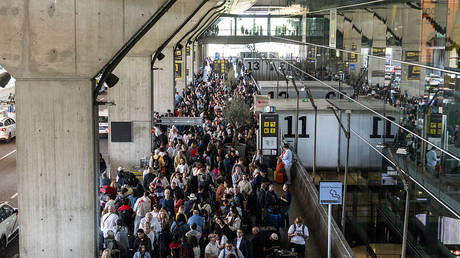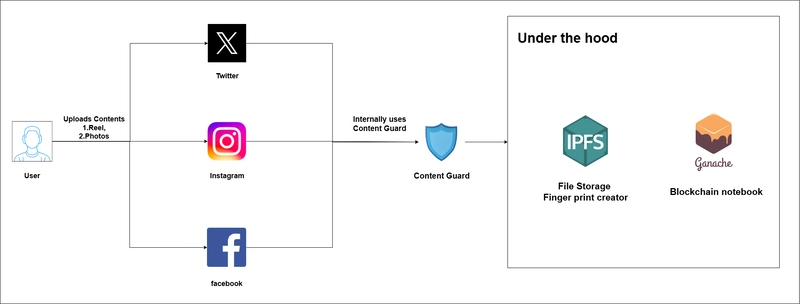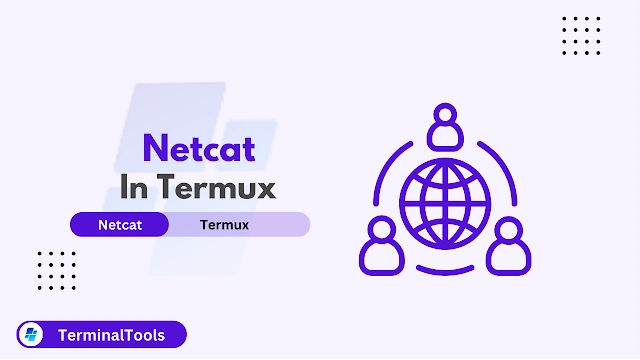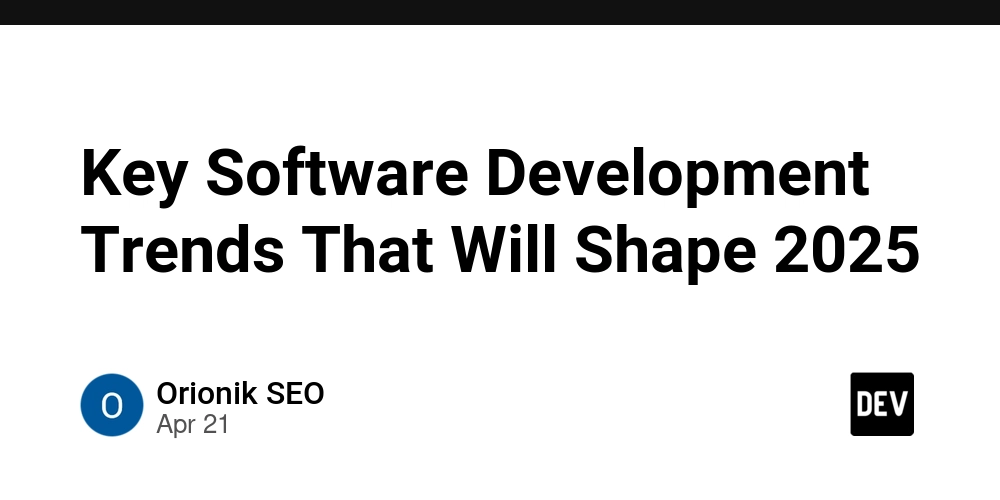Blockchain, NFTs, and Event Management: Revolutionizing Digital Engagement
Abstract This post explores how blockchain technology and Non-Fungible Tokens (NFTs) are transforming event management. By integrating secure ticketing, decentralized smart contracts, and digital collectibles into live and virtual events, organizers enhance security, transparency, and user engagement. We delve into the background and historical context of blockchain and NFTs, examine core technological concepts and features, review practical applications and use cases, discuss challenges and limitations, and forecast future innovations. In doing so, we also highlight cross-industry synergies and provide useful resources—including links to recent articles on blockchain interoperability, NFT marketplaces, and smart contract audits—to guide developers, event organizers, and digital enthusiasts on leveraging these emerging digital tools. Introduction Blockchain technology first emerged as the backbone of Bitcoin and has since evolved into a powerful mechanism for ensuring data security and decentralized management across industries. Today, blockchain's transparent, tamper-proof ledger and the rise of NFTs are revolutionizing traditional event management. With events transitioning from centralized ticketing systems to secure, decentralized digital ecosystems, blockchain and NFTs promise to combat fraud, streamline operations, and enhance the immersive experience for attendees. This blog post builds on insights from the original article while incorporating additional perspectives on blockchain interoperability, NFT uniqueness, smart contracts, and community governance. Whether you are an event organizer exploring secure ticketing, a developer interested in integrating smart contracts, or an NFT enthusiast eager to capitalize on digital collectibles, this guide offers comprehensive insights to help you navigate this evolving landscape. Background and Context Blockchain was initially celebrated as the technology underpinning digital currencies like Bitcoin. Over the years, its inherent properties—security, decentralization, and transparency—have spurred its application in many fields such as supply chain management, government, and notably, event management. As the global shift toward digital engagements continues, the event industry is rapidly reinventing itself with secure ticketing systems, decentralized vendor payments, and digital memorabilia backed by NFT technology. NFTs emerged as a mechanism to prove digital ownership. They create scarcity and exclusivity in a digital environment—qualities that have a natural synergy with event management. Digital tickets become unique assets that can be collected, resold, or even serve as proof of participation and membership in exclusive communities. Historically, centralized platforms suffered from issues such as fraud, unauthorized data breaches, and high transaction fees. Blockchain addresses these by providing an immutable ledger where every transaction is recorded transparently. NFT ticketing not only verifies authenticity but can also offer added benefits like exclusive access to content and future event privileges. The ecosystem has evolved thanks to open-source initiatives and decentralized governance, with projects such as Arbitrum’s blockchain interoperability and NFT marketplaces on Arbitrum leading the way. These innovations set the stage for comprehensive and secure event management systems that can adapt to both physical and virtual event environments. Core Concepts and Features Blockchain and NFTs bring a range of innovative features to event management. The following core concepts illustrate their transformative potential: Blockchain Fundamentals Decentralized Ledger: A blockchain is a distributed ledger that records every transaction in a tamper-proof way. This decentralization ensures that no single entity controls the data, greatly reducing the risk of fraud. Security and Transparency: Each transaction is verified by network nodes, which increases transparency and security. Event-related transactions (like ticket purchases or vendor payments) are recorded and easier to audit. Smart Contracts: These are self-executing contracts with negotiated terms directly written into code. In events, smart contracts automate processes such as ticket issuance, refund processing, and settlement of vendor payments—reducing errors and costs. The Role of NFTs in Digital Engagement Unique Digital Assets: NFTs are non-interchangeable tokens that secure cryptographic proof of ownership. In the event space, NFT tickets serve as both admission passes and collectible memorabilia. Enhanced Ticketing and Access Control: By issuing tickets as NFTs, event organizers can ensure that every ticket is unique and verifiable. This reduces fraud and scalping while offering benefits like exclusive access to post-event rewards. Community Building and Membership: Once an attendee owns an NFT, it can unlock a
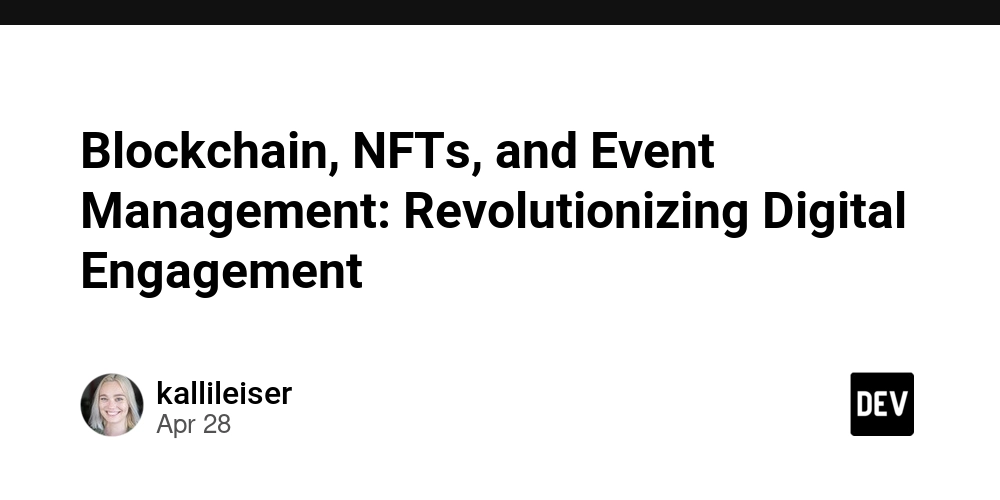
Abstract
This post explores how blockchain technology and Non-Fungible Tokens (NFTs) are transforming event management. By integrating secure ticketing, decentralized smart contracts, and digital collectibles into live and virtual events, organizers enhance security, transparency, and user engagement. We delve into the background and historical context of blockchain and NFTs, examine core technological concepts and features, review practical applications and use cases, discuss challenges and limitations, and forecast future innovations. In doing so, we also highlight cross-industry synergies and provide useful resources—including links to recent articles on blockchain interoperability, NFT marketplaces, and smart contract audits—to guide developers, event organizers, and digital enthusiasts on leveraging these emerging digital tools.
Introduction
Blockchain technology first emerged as the backbone of Bitcoin and has since evolved into a powerful mechanism for ensuring data security and decentralized management across industries. Today, blockchain's transparent, tamper-proof ledger and the rise of NFTs are revolutionizing traditional event management. With events transitioning from centralized ticketing systems to secure, decentralized digital ecosystems, blockchain and NFTs promise to combat fraud, streamline operations, and enhance the immersive experience for attendees.
This blog post builds on insights from the original article while incorporating additional perspectives on blockchain interoperability, NFT uniqueness, smart contracts, and community governance. Whether you are an event organizer exploring secure ticketing, a developer interested in integrating smart contracts, or an NFT enthusiast eager to capitalize on digital collectibles, this guide offers comprehensive insights to help you navigate this evolving landscape.
Background and Context
Blockchain was initially celebrated as the technology underpinning digital currencies like Bitcoin. Over the years, its inherent properties—security, decentralization, and transparency—have spurred its application in many fields such as supply chain management, government, and notably, event management. As the global shift toward digital engagements continues, the event industry is rapidly reinventing itself with secure ticketing systems, decentralized vendor payments, and digital memorabilia backed by NFT technology.
NFTs emerged as a mechanism to prove digital ownership. They create scarcity and exclusivity in a digital environment—qualities that have a natural synergy with event management. Digital tickets become unique assets that can be collected, resold, or even serve as proof of participation and membership in exclusive communities.
Historically, centralized platforms suffered from issues such as fraud, unauthorized data breaches, and high transaction fees. Blockchain addresses these by providing an immutable ledger where every transaction is recorded transparently. NFT ticketing not only verifies authenticity but can also offer added benefits like exclusive access to content and future event privileges.
The ecosystem has evolved thanks to open-source initiatives and decentralized governance, with projects such as Arbitrum’s blockchain interoperability and NFT marketplaces on Arbitrum leading the way. These innovations set the stage for comprehensive and secure event management systems that can adapt to both physical and virtual event environments.
Core Concepts and Features
Blockchain and NFTs bring a range of innovative features to event management. The following core concepts illustrate their transformative potential:
Blockchain Fundamentals
- Decentralized Ledger: A blockchain is a distributed ledger that records every transaction in a tamper-proof way. This decentralization ensures that no single entity controls the data, greatly reducing the risk of fraud.
- Security and Transparency: Each transaction is verified by network nodes, which increases transparency and security. Event-related transactions (like ticket purchases or vendor payments) are recorded and easier to audit.
- Smart Contracts: These are self-executing contracts with negotiated terms directly written into code. In events, smart contracts automate processes such as ticket issuance, refund processing, and settlement of vendor payments—reducing errors and costs.
The Role of NFTs in Digital Engagement
- Unique Digital Assets: NFTs are non-interchangeable tokens that secure cryptographic proof of ownership. In the event space, NFT tickets serve as both admission passes and collectible memorabilia.
- Enhanced Ticketing and Access Control: By issuing tickets as NFTs, event organizers can ensure that every ticket is unique and verifiable. This reduces fraud and scalping while offering benefits like exclusive access to post-event rewards.
- Community Building and Membership: Once an attendee owns an NFT, it can unlock access to exclusive communities, future events, or special digital content—strengthening the bond between organizers and their audience.
Overlapping Features and Synergies
Both blockchain and NFTs offer shared benefits that can be summarized as follows:
- Immutability: The record of each transaction is permanent and unalterable.
- Interoperability: Modern platforms support cross-chain interoperability that allows secure interactions between different systems. For instance, smart contract audits on Arbitrum help maintain security across chains.
- Automated Monetization: NFT sales and smart contract automation facilitate innovative fundraising models and revenue distribution.
- Enhanced Security: The combined cryptographic security ensures a trusted ecosystem for managing event data.
Table: Key Features Comparison
| Feature | Blockchain Technology | NFTs |
|---|---|---|
| Security | Decentralized ledger minimizing risks of fraud and tampering | Unique digital tokens providing verifiable ownership |
| Transparency | Open ledger accessible to all network participants | Clear ownership history recorded on-chain |
| Interoperability | Supports cross-chain interactions (e.g., Arbitrum interoperability) | Can be deployed across multiple blockchain networks |
| Application in Event Management | Ticketing, vendor payments, and automated processes | Digital tickets, collectibles, and community membership tokens |
Bullet List: Key Benefits of Integrating Blockchain and NFTs
- Enhanced Security: Mitigates fraud by providing immutable transaction records.
- Transparent Operations: Every transaction is open to verification by participants.
- Innovative Fundraising: Smarter sponsorship models and NFT-based merchandising open new revenue streams.
- Community Engagement: Digital collectibles foster a sense of belonging and reward repeat participation.
- Operational Efficiency: Automation through smart contracts reduces administrative overhead.
Applications and Use Cases
The integration of blockchain and NFTs in event management is not just theoretical—it is already driving real-world applications. Here are a few illustrative examples:
1. Secure and Transparent Ticketing Systems
Imagine organizing a large-scale music festival where every ticket is issued as an NFT. Each NFT ticket is stored on a blockchain, ensuring its uniqueness and proof of sale. With smart contracts in place, the system automatically handles transactions such as refunds, transfers, or upgrades.
Key Advantages:
- Fraud Prevention: Unauthorized copies or tickets sold on secondary markets are minimized.
- Real-Time Verification: Organizers can quickly verify ticket authenticity at entry points.
- Automated Processes: Smart contracts instantly process payments and support dynamic pricing models.
2. Virtual Conferences and Digital Engagement
In the realm of virtual events, blockchain and NFTs are transforming participant engagement. Consider a tech conference where:
- NFT Tickets double as digital badges, signifying verified attendance.
- Exclusive NFT Content (e.g., digital artwork or limited edition collectibles) is distributed to speakers and participants.
- Secure Networking: Blockchain-backed identities enable seamless, secure interactions amongst attendees.
This platform not only enhances security and authenticity but also creates a dynamic ecosystem where participants can collect and trade NFTs, extending engagement beyond the duration of the event.
3. Interactive Art Exhibitions and Live Performances
Live events, such as art exhibitions or concerts, can leverage NFTs to create interactive and immersive experiences. For instance:
- NFT owners might receive behind-the-scenes access or opportunities to bid on live digital art during the event.
- Digital Souvenirs: Event-specific NFTs serve as collectible souvenirs that can appreciate in value.
- Automated Royalty Distribution: Smart contracts ensure that artists and contributors receive immediate compensation based on predetermined metrics.
These use cases illustrate a decentralized ecosystem that benefits artists, event organizers, and attendees alike by integrating transparency, engagement, and security.
Challenges and Limitations
Despite the promising advantages, integrating blockchain and NFTs into event management does come with its challenges:
Scalability and Network Congestion
As the number of transactions increases, blockchain networks may experience congestion, leading to high transaction fees and delays. While Layer-2 solutions such as those seen on Arbitrum offer scalability improvements, further developments are necessary to support mass adoption.
Technical Complexity and Learning Curve
Implementing blockchain-based systems requires proficiency in smart contracts, cross-chain bridges, and digital wallet integrations. Many event organizers may find these technologies complex at first, which could slow down adoption rates.
Environmental and Regulatory Concerns
Blockchain networks using proof-of-work have raised environmental concerns due to excessive energy usage. Although industry leaders are moving toward greener, proof-of-stake models, ongoing regulatory uncertainty can impact market dynamics and project sustainability.
User Experience and Adoption Barriers
For users unfamiliar with blockchain, managing digital wallets and understanding cryptographic security can be challenging. Designing user-friendly interfaces that explain these concepts in simple terms is essential for broader adoption.
Economic and Market Volatility
NFT valuations and crypto markets can be highly volatile, which may deter some users and complicate long-term financial planning for event organizers. Robust risk management strategies and continuous market research are crucial to navigating these economic challenges.
Future Outlook and Innovations
The convergence of blockchain and NFTs in event management continues to evolve. Innovations on the horizon include:
Enhanced Interoperability and Cross-Chain Solutions
Future developments will likely lead to even greater interoperability among blockchain networks. Projects like Arbitrum’s blockchain interoperability are paving the way for seamless asset transfers and unified ecosystems.
Advancements in Smart Contract Capabilities
We can expect smart contracts to incorporate advanced features like machine learning and zero-knowledge proofs, allowing dynamic pricing, adaptive sponsorship models, and real-time rewards distribution. These improvements will further streamline event processes.
Sustainable and Environmentally Friendly Practices
With an ongoing focus on reducing blockchain’s environmental footprint, energy-efficient consensus mechanisms are taking center stage. As sustainability becomes a critical criterion, blockchain projects will increasingly adopt greener protocols.
Expansion into the Metaverse and Immersive Virtual Events
Virtual reality and augmented reality, combined with NFT digital assets, will deepen the integration with the metaverse. Imagine fully immersive digital venues where avatars attend concerts, network in virtual lobbies, and collect NFTs as souvenirs, thereby merging the physical with the digital.
Community Governance and Decentralization
Decentralized Autonomous Organizations (DAOs) and token-based governance models will empower participants to influence event planning and platform evolution. This move towards community governance not only increases transparency but also fosters trust and engagement.
Additional Resources and Related Discussions
For more insights into blockchain scalability, decentralized identity, and safe, effective open-source solutions, consider exploring these external resources:
- Learn how Arbitrum is a game-changer for Ethereum’s scalability.
- Discover approaches to decentralized identity on blockchain.
- For insights on corporate sponsorship in the digital era, read this comprehensive guide.
In addition, the following links from License Token offer valuable further reading:
- Arbitrum and NFT marketplaces
- Arbitrum and De-Fi yield
- Arbitrum and smart contract audits
- Arbitrum network upgrades
Summary
Blockchain technology and NFTs are not just buzzwords—they are active catalysts for change in event management. By leveraging the secure and transparent nature of blockchain, and combining it with the uniqueness and digital scarcity of NFTs, modern event organizers can overcome long-standing challenges such as ticket fraud, inefficient processes, and lackluster engagement.
Key takeaways include:
- Innovation and Security: Distributed ledger technology provides tamper-proof records, while NFT ticketing offers enhanced security and collectibility.
- Operational Efficiency: Smart contracts automate complex processes, reducing administrative costs and errors.
- Community and Monetization: NFTs create lasting, engaging connections between event organizers and their audiences.
- Scalability and Sustainability: While challenges remain—such as network congestion and environmental concerns—ongoing innovations, including Layer-2 scalability, eco-friendly protocols, and cross-chain interoperability, are paving the way for the future.
As the digital landscape continues to evolve, embracing blockchain and NFT technologies is crucial for those looking to secure, modernize, and enrich event experiences. The convergence of these technologies heralds a new era of decentralized engagement, where both organizers and participants can enjoy a more secure, transparent, and interactive digital realm.
Whether you're planning a live concert, a high-profile conference, or an interactive art exhibition, integrating these technologies offers significant advantages and prepares your event for the future. Embrace the challenges, invest in innovation, and become part of the movement that is revolutionizing digital engagement and event management.
Embrace the future of secure digital engagement. With blockchain and NFTs, each event can be a unique, secure, and unforgettable experience—an innovation that not only transforms ticketing but also builds sustainable communities.
Happy innovating!

